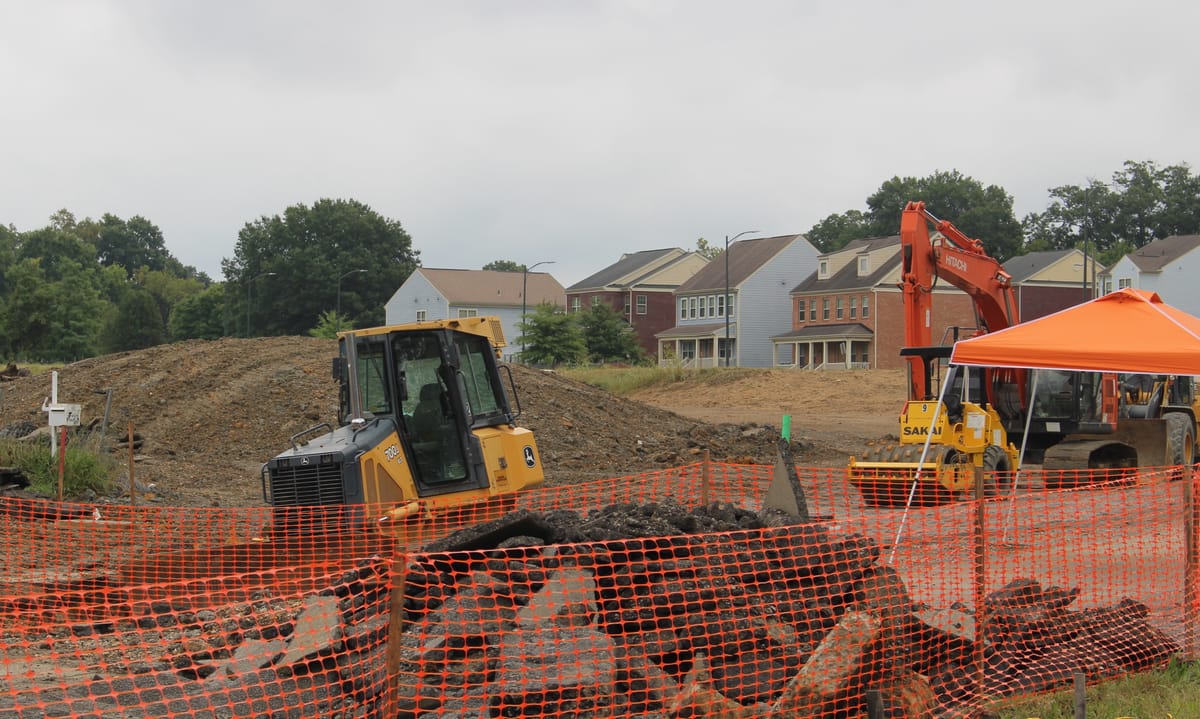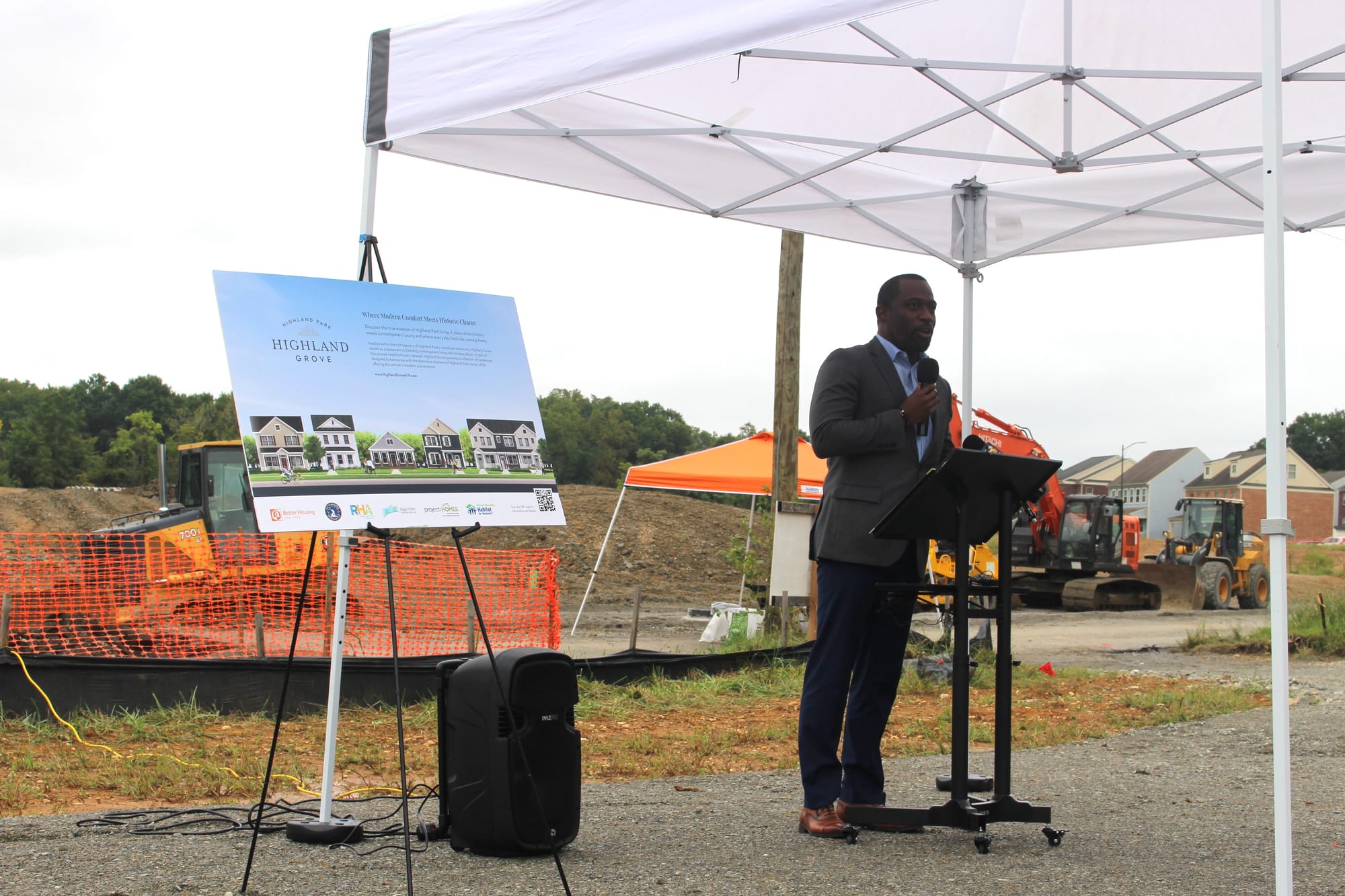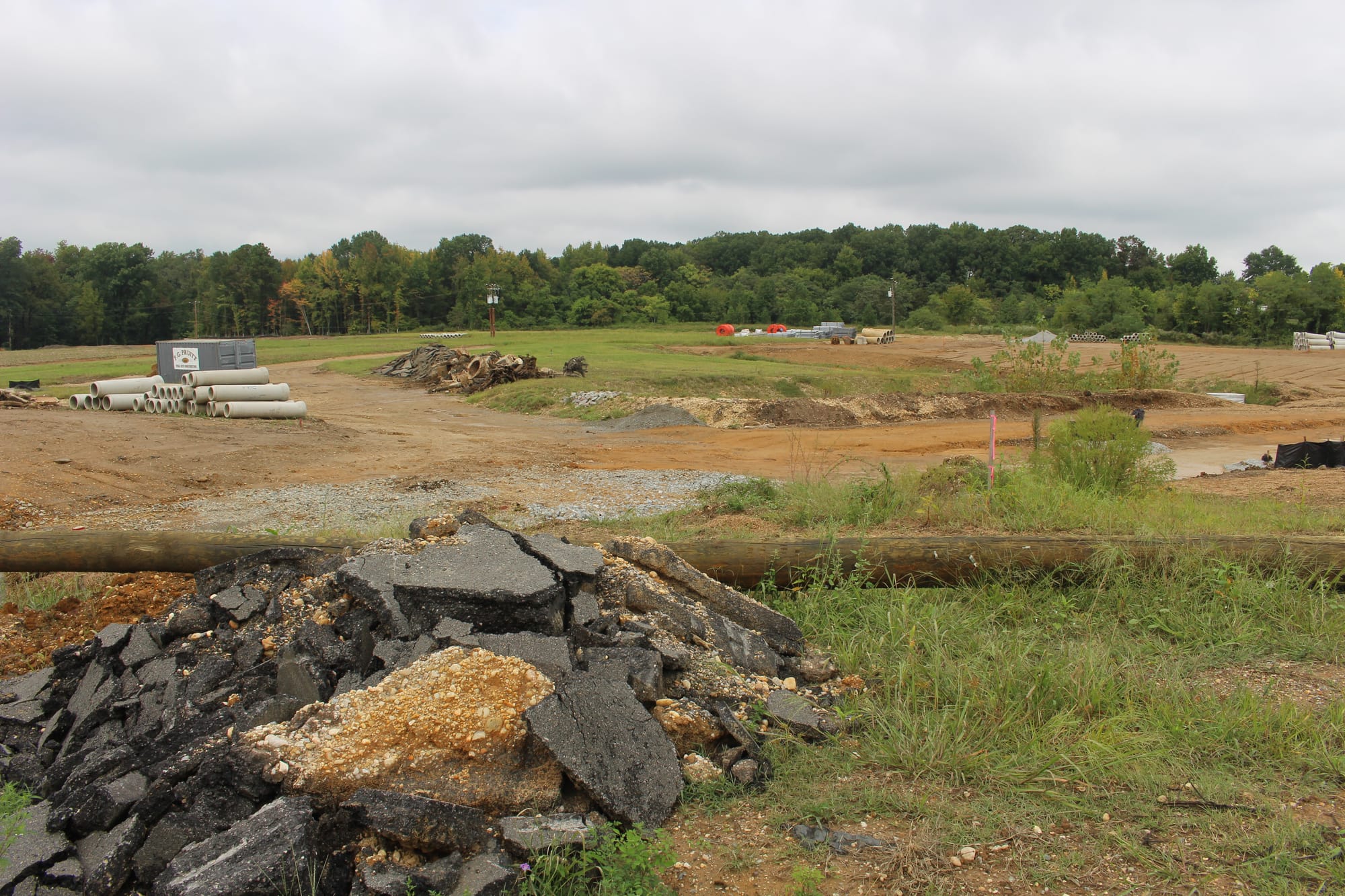City breaks ground on Northside development that will add 125 new homes

After years of planning and waiting, construction is underway on a Northside development that will add 125 new single family homes to Highland Park, almost half of which will be reserved for people whose incomes make it difficult to compete for housing in Richmond’s tight market.
“To have affordable housing and especially homeownership opportunity in the Highland Park community is music to this girl’s ears,” said 6th District Councilor Ellen Robertson, who represents the area, during a groundbreaking on Dove Street Thursday.
The $59.7 million project, known as Highland Grove, is being overseen by the Better Housing Coalition as the next phase of a massive overhaul of a neighborhood that was once home to the Dove Court public housing complex and the privately owned Carrington Gardens and Northridge apartment complexes, as well as a National Guard armory.
When complete, it will include 30 homes for people making 80% or less than the area median income, 30 homes for people making between 81 and 120% of AMI and 65 market-rate units. The income limits used for the project are those set by the U.S. Department of Housing and Urban Development for the Richmond metropolitan statistical area, a region that includes 15 surrounding cities and counties.
For 2024, 80% of the area median income would be $61,800 for one person and $88,250 for a family of four. Jessie Ewald, a construction manager with the Better Housing Coalition, said that while the 120% limit is not captured in HUD’s tables, it would be approximately $92,650 for an individual and $132,360 for a family of four.
“All of the homes are reserved for people who intend to live in them for their primary residence,” she said. She also noted the income-limited houses are earmarked for first-time homebuyers, defined as either someone who has never purchased a home or someone who has not owned a property in the last three years. All will be in walking distance to the adjacent Overby-Sheppard Elementary School.
Richmond began redeveloping the roughly 50-acre area of Northside in 2012, four years after the demolition of Dove Court. By 2013, North Carolina company Laurel Street Residential had built 128 mixed-use rental apartments and townhomes on part of the site.
But the second phase of the redevelopment, which focuses on mixed-income single family homes that will be sold rather than rented, has been much slower to come to fruition.

Richmond Mayor Levar Stoney and Robertson attributed the delays to a variety of factors. “Over the course of the last decade, we’ve experienced the pandemic, we’ve experienced the economic downturn,” said Stoney. Robertson noted the challenges of getting financing for affordable housing developments, as well as cultivating community buy-in.
“You cannot build affordable housing unless you get extremely valued subsidies in the financial package to make that happen,” she said, estimating it takes a nonprofit $250,000 to $300,000 to construct one unit of housing in the city — a price tag outside the affordable range for most low-income residents.
Most of the city’s key players in the affordable housing space are partnering with the Better Housing Coalition on Highland Grove, including the Richmond Redevelopment and Housing Authority, Maggie Walker Community Land Trust, Project:HOMES and the Richmond Metropolitan Habitat for Humanity.
The goal “is stabilizing and enhancing a long-forgotten part of Northside,” said Lee Householder, executive director of Project:HOMES, which is slated to construct 40 of Highland Grove’s homes. “This area is a connector of two major neighborhoods, and stabilizing it through diverse housing I think will be huge.”

Richmond, like many other places, has felt the pinch of rapidly rising house prices and inadequate housing supply. An influx of new residents from higher-wage cities like Washington, D.C. during the pandemic further strained the market, leaving many low-income residents unable to find a place to rent or buy. In 2023, City Council declared Richmond was facing an affordable housing crisis.
“We need every level of housing. We also need different types of housing,” Stoney said Thursday. “Yes, we need the multifamily. Yes, we need the duplexes. Yes, we need the condos. But we also need single family homes.”
The city has put $17.2 million toward Highland Grove since 2017, with an additional $1.8 million expected.
Both Stoney and Robertson described the development as unique in Richmond’s affordable housing portfolio: Rather than a building or complex of buildings, Highland Grove is a subdivision. Community members had the chance to weigh in on its design through a process led by nonprofit Storefront for Community Design.
“This is probably the first opportunity in the city of Richmond for us to build a subdivision for homeownership and to have opportunities for all different levels of income included in that development,” said Robertson.
Site work is already underway on Dove Street, with construction of the individual houses expected to begin in early 2025.
(Better Housing Coalition CEO Greta Harris is a member of The Richmonder's Board of Directors. She had no influence over the assignment or editing of this story.)






